Original: Cheng Qian
Source: Smart Things
Smart Things reported on August 23 that in the past three months, there have been many changes in the wave of generative AI, and major events have also occurred in the domestic AI large model industry:
On June 29, Meituan announced the completion of the acquisition of the AI large model unicorn company Lightyear Beyond, and Wang Xiaoquan, the founder of AI large model startup Bai Chuan Intelligence, founded three open source large models in quick succession; Yuan Jinhui, the founder of OneFlow (Yifliu Technology), an AI large model startup acquired by Lightyear Beyond, also confirmed this week that the Yifliu Technology team will re-entrepreneurship to target the problem of large model inference costs.
Interestingly, the main characters in the domestic AI large model competition, including Meituan founder Wang Xing, Lightyear Beyond founder Wang Huiwen, Sogou founder Wang Xiaoquan, and Yifliu Technology founder Yuan Jinhui, are all Tsinghua alumni.
In the lively AI large model competition, Tsinghua students have "grabbed" the limelight. In addition to internet "veterans" such as Wang Huiwen and Wang Xiaoquan making high-profile entries, there are also many Tsinghua professors and graduates joining the competition. According to incomplete statistics from Smart Things, there are at least 17 founders with Tsinghua background among the recently active AI large model startups, involving 11 companies. The Tsinghua entrepreneurial team seems to be propping up half of the domestic AI large model entrepreneurship wave.

▲ Tsinghua alumni startups recently active in the domestic large model wave (compiled from public information)
Entrepreneurs: Tsinghua senior brothers in the 1990s, internet "veterans" enter the arena in a high-profile manner
Many years later, when people recall the unprecedented boom of the domestic AI large model entrepreneurship wave, two names will surely come to mind first, Wang Huiwen and Wang Xiaoquan. In February and April of this year, these two internet veterans successively announced their entrepreneurship and aimed at large models.
In addition to these common points, Wang Xiaoquan and Wang Huiwen, these senior brothers who graduated from Tsinghua University in 1996 and 1997, respectively, are also worth mentioning.
1. Wang Huiwen: Becoming a unicorn in two months, having no product is the biggest hidden danger
The first to announce entrepreneurship was Wang Huiwen. In mid-February, Wang Huiwen posted 5 WeChat moments in 6 days, from expressing his attitude to "bringing in 5 million US dollars to form a team" and releasing the "AI Hero List," and finally, the AI large model startup Lightyear Beyond was formed.
Wang Huiwen's entrepreneurial path always seems to have the shadow of Meituan founder Wang Xing. In 1997, Wang Huiwen entered the Department of Electronic Engineering at Tsinghua University and became a bunk bed brother with Wang Xing by chance. Ironically, the reason why the two of them were inseparable was that Wang Huiwen, who had excellent grades, found himself only a "poor student" among many outstanding students after entering Tsinghua University, and thus sympathized with Wang Xing, who had similar grades.
After graduation, the two experienced several twists and turns and finally reunited at Meituan. During their postgraduate studies, Wang Huiwen and Wang Xing both dropped out of school and aimed at the social network that was rising in the United States at the time, creating the campus network that was popular among college students and then ran into commercial difficulties. They later chose to sell the campus network to achieve financial freedom and went their separate ways to start their own businesses. In 2010, Wang Huiwen joined Meituan and once again joined forces with Wang Xing. In 2020, at the age of 42, with a net worth of 12 billion RMB, Wang Huiwen chose to retire from Meituan.
This time, Wang Huiwen has re-entered the arena and entered the AI large model competition. After announcing his entrepreneurship, top talents and high financing came one after another. Former deputy director of the Beijing Zhijing Artificial Intelligence Research Institute, Liu Jiang, and Ma Zhankai, known as the "father of Sogou input method," joined, and then Wang Xing and the founder of Kuaishou, Su Hua, invested money. Two months after its establishment, Lightyear Beyond quickly rose to become a unicorn, with a valuation of 1 billion US dollars.
Behind this, Wang Huiwen, who does not have a technical background, began to actively recruit talents. In April, Lightyear Beyond acquired OneFlow, another Tsinghua-based startup. The founder of this startup is Yuan Jinhui, a student of Zhang Bo, the founder of Chinese artificial intelligence.
After that, with abundant capital and technology, Lightyear Beyond's business layout is about to take off, becoming the focus of AI large model entrepreneurship. However, at the end of June, Wang Huiwen was reported to have left his post due to illness, and then Wang Xing entered the arena, and Lightyear Beyond was fully acquired by Meituan.
At present, Wang Huiwen's AI large model entrepreneurship has come to an end. Whether he will return to the "battlefield" in the future is still unknown. However, with no progress in product development announced after six months of establishment, this may have become the biggest risk for this large model startup, which has several halos.
2. Wang Xiaoquan: Announcing 3 large models in over 90 days, with a luxurious investment lineup
In contrast to Wang Huiwen, Wang Xiaoquan, who has almost the same level of attention, released three large models in just four months and began to explore the commercialization of large models.
Wang Xiaoquan, a well-known graduate of the Computer Science Department of Tsinghua University in 1996, was one of the first wave of participants in China's internet industry and witnessed every moment of China's internet development, making them the "dream team of the internet." Wang Xiaoquan is one of them.
In 1996, Wang Xiaoquan, who won the gold medal in the International Olympiad in Informatics, was recruited into the Computer Science Department of Tsinghua University, where he stayed for seven years. From computer science to biology, from the Chinese youth community platform ChinaRen to Sohu, Wang Xiaoquan's technical talent gradually expanded, but he almost never left Wudaokou, and Wang Xiaoquan was also known as the "gatekeeper of the east gate of Tsinghua."
Wang Xiaoquan also settled Bai Chuan Intelligence in Wudaokou. In April of this year, Wang Xiaoquan and former Sogou COO Ru Liyun jointly established Bai Chuan Intelligence and announced their entry into the large model entrepreneurship. Many former Sogou team members actively applied to join, and according to Wang Xiaoquan, the proportion of former Sogou employees in Bai Chuan Intelligence is 30-40%.
A month after its establishment, Bai Chuan Intelligence received joint investments from more than ten institutions, including Tencent, Xiaomi, Kingsoft, Tsinghua University Asset Management Co., Ltd., and TAL Education Group, with a luxurious investment lineup that is rare.
In four months, Bai Chuan Intelligence has released the 13-billion-parameter general large language model Baichuan-13B-Base, the dialogue model Baichuan-13B-Chat and its INT4/INT8 two quantized versions, and the 53-billion-parameter large model Baichuan-53B, covering from open source to closed source. Next, Wang Xiaoquan aims to find super applications for large models based on open source, based on Sogou's experience with super applications, and large models with GPT-level capabilities.
Wang Huiwen and Wang Xiaoquan, both Tsinghua alumni who once created China's internet, have re-entered the arena under the wave of large models. In addition to these two internet veterans, many Tsinghua professors and students are also particularly eye-catching in this smoky large model race.
02. Academics: Five professors lead, incubating multiple large model startups
Tsinghua University is undoubtedly a talent treasure trove in the domestic AI large model race, and the current academic strength is booming, with five professors leading the wave of AI large model entrepreneurship gradually unfolding.
In the field of artificial intelligence, the Zhijing Research Institute is a well-known name. Established in 2018, the Zhijing Research Institute officially brought together top talents from leading universities and enterprises in the artificial intelligence industry, such as Peking University, Tsinghua University, the Chinese Academy of Sciences, Baidu, and ByteDance.
After the release of OpenAI's GPT-3, the Zhijing Research Institute took the lead in launching the large model project, with well-known AI scholars from Tsinghua University such as Tang Jie, Liu Zhiyuan, Huang Minlie, and Yang Zhilin joining, forming the core team of the later Wudao large model.
These AI experts have also become the core force in this wave of large model entrepreneurship.
1. Tang Jie: Core member who has participated in the development of well-known large models, received overwhelming financing
Companies such as Zhipu AI, Zhijing Research Institute, The Dark Side of the Moon, and Circular Intelligence, which are at the center of the large model boom, have close ties with Tang Jie, a professor in the Department of Computer Science at Tsinghua University.
Professor Tang Jie has a distinguished background. He is the head of the Knowledge Engineering Laboratory (KEG) at the Department of Computer Science at Tsinghua University, as well as the academic vice president of the Zhijing Research Institute and the head of the Wudao project.
In fact, Tang Jie initially did not believe that machine intelligence would surpass humans. His main research direction was data mining and knowledge engineering, but the emergence of large-scale pre-training models made him see the possibility of machine intelligence surpassing humans.
In 2020, OpenAI released GPT-3, causing a stir in the entire artificial intelligence industry. Subsequently, in October 2020, the Zhijing Research Institute took the lead in determining the research direction of large models. Tang Jie, who was then the vice president of Zhijing, led the team to release the Wudao 1.0 and 2.0 models in 2021. At the same time, Wudao 2.0 set a world record with a trillion-level parameter scale, the first in China and the largest in the world.
At the same time, the core team of Zhipu AI, incubated by the KEG Laboratory, also consists of many developers of the Wudao large model. In July of this year, Zhipu AI, which was just acquired by Meituan from Lightyear Beyond, received exclusive investment from Meituan, with a financing amount of several hundred million RMB. Currently, Zhipu AI has a large model and application product matrix, including the open source model ChatGLM and the code generation model CodeGeeX in both Chinese and English.
In addition to Tang Jie himself, his well-known disciple Yang Zhilin has also entered the large model arena. Yang Zhilin, who graduated from Tsinghua, studied under AI giants from Apple and Google at Carnegie Mellon University in the United States. On June 12, Yang Zhilin's new large model startup, The Dark Side of the Moon, made its debut and quickly received investments from Sequoia and ZhenFund, with a market valuation of 300 million US dollars. However, Yang Zhilin's halo is far from limited to this. As early as 2016, Yang Zhilin founded Circular Intelligence, which focuses on natural language understanding, and has also participated in the development of Huawei's Pangu large model.
The other three co-founders of The Dark Side of the Moon, Zhang Yutao and Zhou Xinyu, also graduated from Tsinghua, and Zhang Yutao is also a student of Tang Jie.
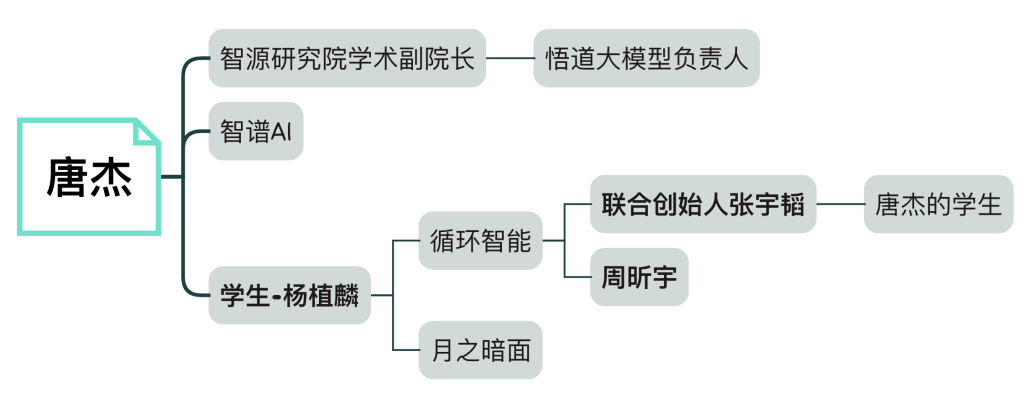
2. Sun Maosong: Leading in the number of startups and the variety of applications, from information processing to legal large models
Sun Maosong, a professor at the Tsinghua University Institute of Artificial Intelligence, is the head of the Natural Language Processing and Social Humanities Computing Laboratory (THUNLP), and Liu Zhiyuan is a student of Sun Maosong. Compared to Professor Tang Jie, Sun Maosong and Liu Zhiyuan's team have more startup companies and a richer variety of application areas.
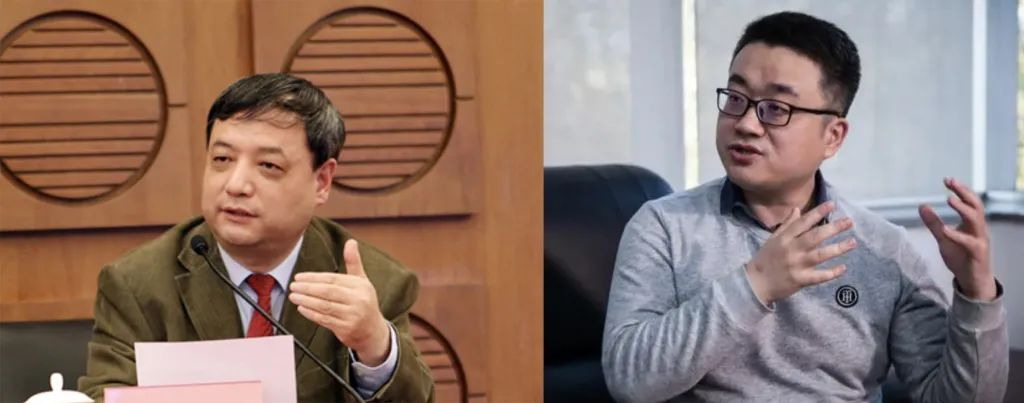
▲ Sun Maosong (left) and Liu Zhiyuan (right)
Shenyan Technology focuses on creating a Chinese information processing engine based on pre-trained models, Mianbi Intelligence focuses on the core technology of basic large models, and Power Law Intelligence aims to apply natural language processing to the field of law. Previously, there were rumors that Wang Huiwen wanted to acquire Shenyan Technology and Mianbi Intelligence, but these acquisition rumors all came to nothing.
In 2021, a reverse dictionary called WantWords suddenly became popular on social platforms, attracting about 300,000 users in two to three weeks. The development team of this application later became the founding team of Shenyan Technology. WantWords, based on deep learning, can help people find words based on semantic descriptions, and this product has also helped Shenyan Technology gain popularity.

▲ WantWords reverse dictionary homepage
Qifanchao, who had long wanted to start a business, founded Shenyan Technology after graduating in 2022. Sun Maosong serves as the chief scientist, and the core team of Shenyan Technology all have master's and doctoral backgrounds from Tsinghua University. Since its establishment, Shenyan Technology has completed three rounds of financing, with the latest round including Tencent and TAL Education Group. Although the specific amount of financing has not been disclosed, it is rumored that its valuation has reached 100 million US dollars after the second round of financing.
Another company rumored to be acquired, Mianbi Intelligence, was founded by Liu Zhiyuan's student Zeng Guoyang, with Liu Zhiyuan serving as a co-founder. Mianbi Intelligence has completed a seed round of financing of nearly ten million RMB and previously launched the CPM-Live hundred-billion Chinese large model live training project.
In April of this year, Zhihu announced a joint development with Mianbi Intelligence of "Zhihui Map AI" and invested tens of millions of RMB in it, breaking the rumors of Mianbi Intelligence's acquisition. With the support of technology, talent, capital, applications, and data, Mianbi Intelligence's large models have been widely used in applications on Zhihu.
In addition to these two startups, there is also Power Law Intelligence, founded by Tu Cunchao, a PhD from the Department of Computer Science at Tsinghua University. This company focuses on the combination of natural language processing technology and the field of law. In June of this year, Power Law Intelligence and Zhipu AI jointly released the PowerLawGLM, a legal vertical large model based on a Chinese hundred-billion large model.

3. Huang Minlie: Targeting specific scenarios in psychological counseling, aiming to create a Chinese version of Character AI
Also involved in the development of the Wudao large model, Huang Minlie, a tenured professor in the Department of Computer Science and Technology at Tsinghua University, is a typical representative of AI experts returning to academia.
In 2021, Professor Huang Minlie founded Lingxin Intelligence, whose founding team mostly comes from research institutions at Tsinghua University, Peking University, and Beijing Normal University. As of now, Lingxin Intelligence has completed three rounds of financing, with investment institutions including the Tsinghua-affiliated Zhipu Huazhang, among others. The specific financing amount disclosed was a several-million RMB angel round of financing completed in December last year.
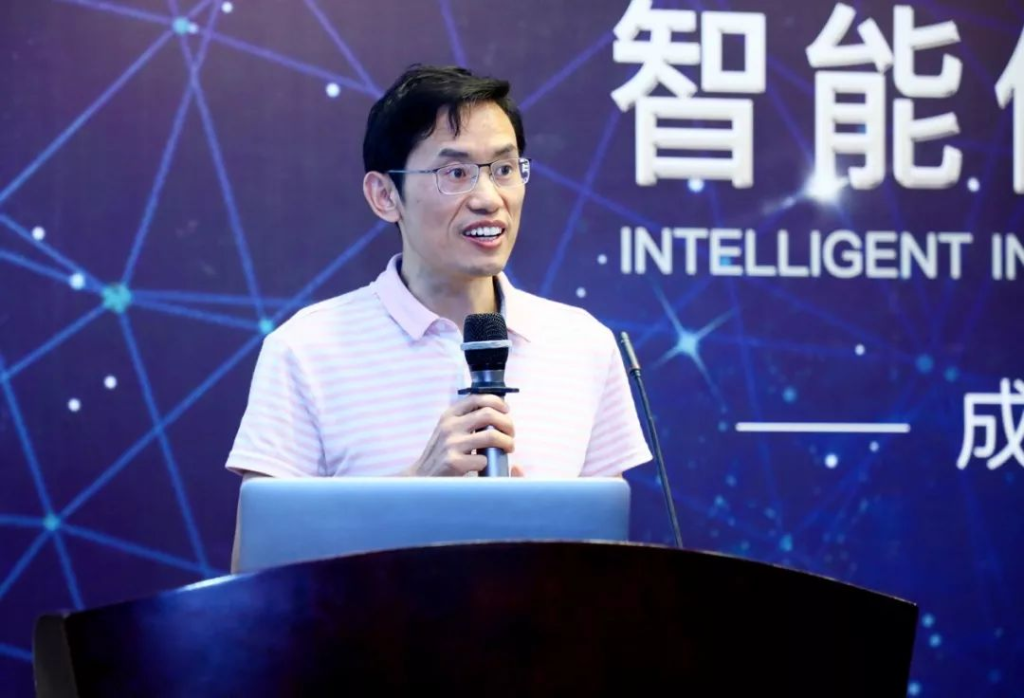
▲ Huang Minlie, tenured professor in the Department of Computer Science and Technology at Tsinghua University (Source: Tsinghua University Institute of Artificial Intelligence)
In the early stages of its establishment, Professor Huang Minlie focused on enabling artificial intelligence to provide disease diagnosis and personalized intervention for people with mental subhealth. This entrepreneurial goal was inspired by the story of a student of his who suffered from depression.
In July of this year, Lingxin Intelligence released the ultra-human large model CharacterGLM, which provides AI images tailored to individual users and can chat with users in a personalized manner. Based on this large model, Lingxin Intelligence is also testing a new product, AiU, for user interest interaction communities.
Unlike startups targeting OpenAI in this wave of large models, Lingxin Intelligence previously revealed that they aim to create "Chinese Character AI," which allows users to create personalized AI characters for interaction.
4. Zhu Jun: Focusing on multimodal large models, receiving investments from Ant Group and Baidu Ventures
Zhu Jun, a professor in the Department of Computer Science at Tsinghua University and the director of the Basic Theory Research Center at the Tsinghua University Institute of Artificial Intelligence, is one of the latest Tsinghua professors to enter the arena. Shengshu Technology was established in March of this year, and its core team mostly comes from the Tsinghua University Institute of Artificial Intelligence, focusing on creating multimodal universal large models.
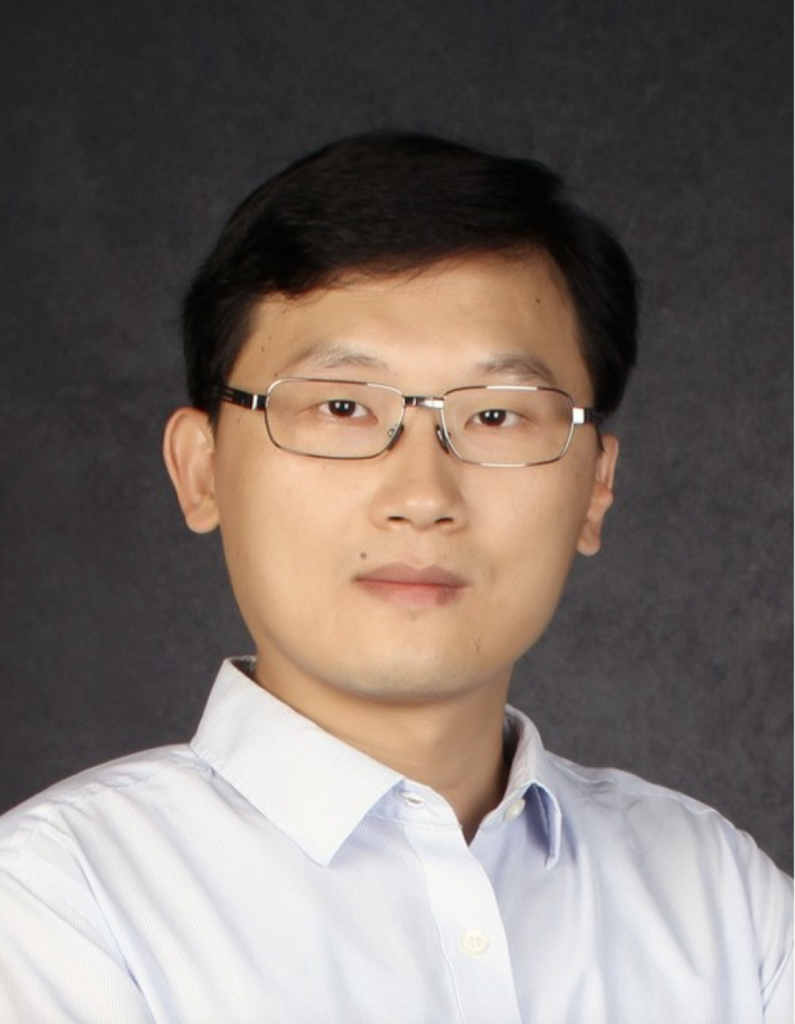
▲ Zhu Jun, professor in the Department of Computer Science at Tsinghua University and director of the Basic Theory Research Center at the Tsinghua University Institute of Artificial Intelligence (Source: Beijing Zhijing Conference Official Website)
Professor Zhu Jun's first entrepreneurial venture can be traced back to 2018 when he founded RealAI, which focused on improving the security of artificial intelligence.
Shengshu Technology is an incubation of RealAI and has completed two rounds of investment. In June of this year, it received nearly 100 million RMB in financing from Ant Group and Baidu Ventures, and in August of this year, it received tens of millions of RMB in exclusive investment from Jinqiu Fund.
Shengshu Technology's co-founder and CEO, Tang Jiayu, is also a student of Professor Sun Maosong. In a previous interview, he mentioned that the image generation effect of the large models trained by Shengshu Technology has surpassed Stable Diffusion and is expected to surpass Midjourmy by the end of the year.

5. Zhou Bowen: Targeting consumer businesses, developing self-made hundred-billion-level vertical large models
The situation of Zhou Bowen, the Huiyan Endowed Chair Professor at Tsinghua University, tenured professor in the Department of Electronic Engineering at Tsinghua University, and director of the Collaborative Interactive Intelligence Research Center at the Department of Electronic Engineering at Tsinghua University, is slightly different from the above-mentioned professors. He is a typical representative of AI experts returning to academia.
From IBM to JD.com, Zhou Bowen has been involved in basic theoretical research and core technology research in artificial intelligence for over 20 years. After leaving JD.com in 2021, he was officially appointed by Tsinghua University in mid-2022.
In addition to returning to academia, Zhou Bowen has also set his sights on AI entrepreneurship. In 2021, Xianyuan Technology was established, and the core product of this company targets the consumer industry, providing an enterprise-level multi-round dialogue platform, ProductGPT, based on large models of the commodity supply chain. According to the company's information, this AI large model is self-developed, with a parameter scale in the hundreds of billions, enabling the large model to better understand people and products while possessing general capabilities.
The academic strength of Tsinghua University has now stepped onto the stage of large model entrepreneurship, with professors starting their own businesses and students and teachers partnering up. In fact, in the current wave of entrepreneurship in China, the Tsinghua network has propped up half of the industry, and this is all thanks to Tsinghua University's forward-looking layout in the field of artificial intelligence in the last century.
03. Starting from scratch and catching up, Tsinghua University supports half of the large model entrepreneurship
Tsinghua University, a high-level university that has gathered many top talents in China, is also the birthplace of the budding of Chinese artificial intelligence technology.
Compared to the current popularity, the term "artificial intelligence" was also very unfamiliar to professionals in China's field of artificial intelligence over 40 years ago. In 1978, the term "artificial intelligence" first appeared at Tsinghua University, and the Department of Automatic Control was renamed the Department of Computer Technology and Applications, and the internal artificial intelligence and intelligent control research group was established, marking the beginning of teaching in the field of artificial intelligence.
Tsinghua University has also set several firsts in the field of artificial intelligence in China: it admitted the first batch of master's students in 1978; established the first intelligent robot laboratory in 1983; published the first academic paper in the field of artificial intelligence at the International Joint Conference on Artificial Intelligence (IJCAI) in 1983; won the first international award in the field of artificial intelligence in 1984; graduated the first doctoral student in the field of artificial intelligence in 1987; established the first national key laboratory related to artificial intelligence, the "Intelligent Technology and Systems" in 1990; established the "Tsinghua University Computer Science Laboratory" in 2005, also known as the "Yao Class" in the field of artificial intelligence today; and established the cross-disciplinary research institution "Tsinghua University Institute of Artificial Intelligence" in 2018.
China has gradually caught up with the world's leading level in the field of artificial intelligence and has taken a place in it.
However, a few words cannot fully summarize the difficulties of Tsinghua University from a blank slate to the fruitful results of today. In the 1970s, research in China's field of artificial intelligence, such as biotic control and pattern recognition, had begun, but due to political and other influences, research in artificial intelligence was somewhat stagnant.
Researchers who had no opportunities for study in China went to the United States for further comprehensive and systematic understanding of the field of artificial intelligence after the reform and opening up. Zhang Bo, who was in his 40s, was one of these students studying abroad. As a visiting scholar, he went to the University of Illinois at Urbana-Champaign in the United States for further study, and China's NLP research pioneer Huang Changning visited Yale University for a one-year visit. They both became important pioneers and promoters of China's artificial intelligence industry.
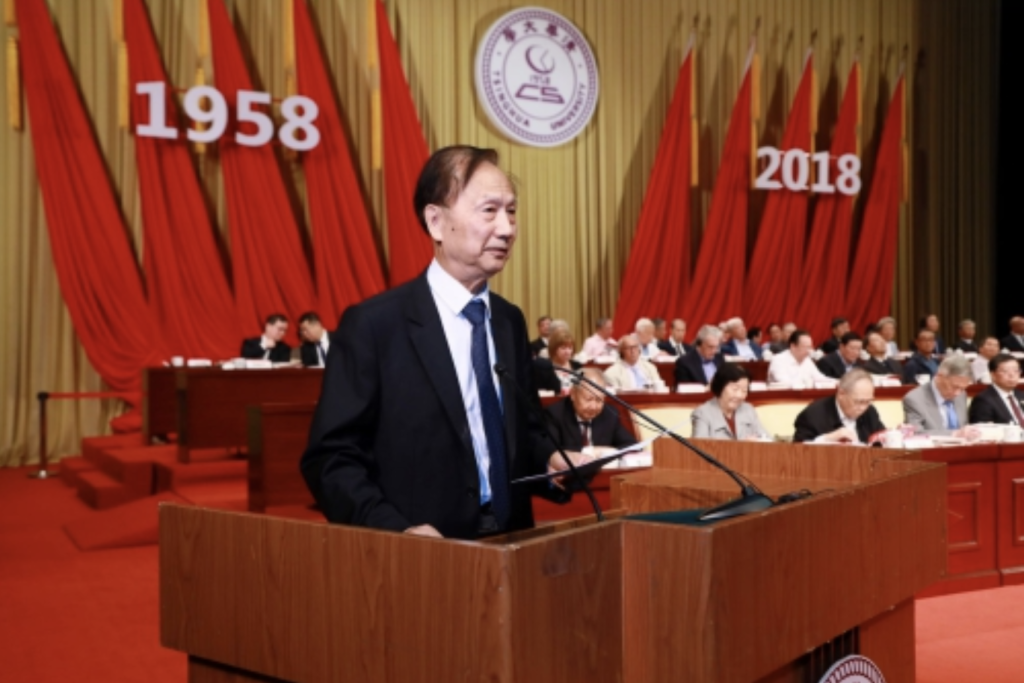
▲ Academician Zhang Bo's speech at the 60th anniversary of the Department of Computer Science (Source: Tsinghua University)
Overall, the development of artificial intelligence research in China started more than 20 years later than in foreign countries and has gone through a process of development from nothing to strength. Today, the development of the domestic artificial intelligence industry is almost on par with other countries, and entrepreneurs from Tsinghua University are a strong force in this wave of large model innovation. They are transitioning from the ivory tower to the training ground and growing rapidly, relying on the foundation laid by their predecessors in the field of artificial intelligence, their own strong technical accumulation, and their spirit of exploration and truth-seeking in cutting-edge technology.
Conclusion: Tsinghua Entrepreneurship is Ready to Go
Tsinghua University can be considered one of the birthplaces of artificial intelligence research in China, and in this new wave of artificial intelligence, Tsinghua University is undoubtedly highly anticipated.
In addition to the rapid momentum of entrepreneurship, the capital market has also chosen to heavily invest in Tsinghua's entrepreneurial teams. In April, after the completion of a new round of financing, Shenyan Technology was valued at $100 million, and in June, Shengshu Technology completed nearly 100 million RMB in angel round financing, with Tencent reportedly investing $50 million in Lightyear Beyond in June this year…
Now, the wave of large model entrepreneurship has gradually calmed down, and many entrepreneurial teams from Tsinghua University have announced their achievements in large models and are actively involved in the application of large models. The new round of competition among Chinese large model entrepreneurs has begun and is becoming increasingly intense.
Today, the advantages of Tsinghua University are gradually becoming apparent. It has not only become a talent pool in the field of large models but also occupies a significant position in the wave of large model entrepreneurship in China.
Reference: Speech at the 60th anniversary of the Department of Computer Science, "Growing Together with the Department of Computer Science"
免责声明:本文章仅代表作者个人观点,不代表本平台的立场和观点。本文章仅供信息分享,不构成对任何人的任何投资建议。用户与作者之间的任何争议,与本平台无关。如网页中刊载的文章或图片涉及侵权,请提供相关的权利证明和身份证明发送邮件到support@aicoin.com,本平台相关工作人员将会进行核查。




